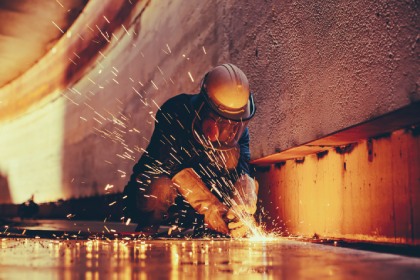Germany’s energy-intensive industries (EIDs) have called for a long-term and reliable solution to ensure competitive electricity prices, warning that persistently high power costs are eroding competitiveness and investment confidence.
According to the joint industry platform Energy-Intensive Industries in Germany (EID), wholesale electricity prices have permanently risen by about 100 percent since late 2021, leading to a 20 percent decline in production across sectors.

CISAF is a step forward, but far from sufficient
The industries welcomed the Clean Industrial Deal State Aid Framework (CISAF) as the first EU-level legal basis to address high electricity prices but described it as too limited in scope
They identify several shortcomings that limit its effectiveness. These include its short duration until 2030, with maximum three-year relief periods, the limited relief volume covering only 50 percent of electricity consumption, countermeasures that reduce the relief effect by half, narrow coverage restricted to only significant relocation risk sectors, and the lack of cumulative effect for companies already benefiting from electricity price compensation.
The EIDs argue that these restrictions undermine CISAF’s intended impact, leaving industries vulnerable to carbon leakage and production relocation outside Europe.
Proposals for immediate and structural improvements
To strengthen CISAF’s effectiveness, the EIDs propose:
- expanding eligibility to both high and moderate relocation-risk sectors
- allowing companies to choose or combine electricity price compensation and CISAF aid
- calculating relief based on theoretical consumption benchmarks
- applying support to all electricity volumes, regardless of source
- using the average baseload future price as the relief reference for transparency
The industries further recommend that disbursement coincides with electricity consumption, ideally through monthly or annual payments, supported by preliminary funding approvals to aid production cost planning.
Call for a permanent, predictable framework
Beyond immediate improvements, the EIDs urge the federal government to collaborate with the European Commission and member states to develop CISAF into a long-term, reliable mechanism.
The revised framework, they argue, should allow full cumulation with electricity price compensation, remove the 50 percent consumption cap and separate competitiveness measures from environmental offsets.
They propose that CISAF remain in place indefinitely, until electricity prices between €40/MWh and €60/MWh are consistently achieved, enabling sustainable competitiveness.
Currently, under CISAF’s restrictive parameters, industries face an effective electricity price of €83.75/MWh, based on the 2024 wholesale average of €95/MWh, well above the viable range.